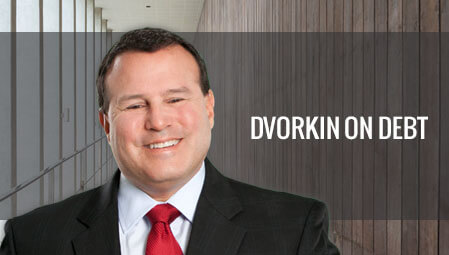The headlines during Financial Literacy Month have been scary, but buried in the stories is really good news.
This week marks the end of Financial Literacy Month. April is supposed to be a time when financial experts join forces and educate Americans on how to manage their money, get out of debt, and invest in their futures – and those of their children.
Sadly, Financial Literacy Month is also when pollsters ask Americans money questions – and the results can be depressing. This month alone, I’ve reported that less than half of employees take full advantage of their work benefits, while 48 percent of teenagers think their parents will pay for their college, while only 16 percent plan to.
However, there’s been some encouraging news, too. Let’s leave Financial Literacy Month on a high note, with these bits of good news that were buried under these scary headlines…
90 percent of Americans don’t know how much they can contribute to their 401(k) plans
Only 10 percent of employees under 50 know how much the IRS lets you contribute to their 401(k)s, a distraught Fifth Third bank reported this month. Other bad news in their survey: “42 percent contribute to a 401(k) plan.”
However, “46 percent of those not contributing are not eligible, or their company does not offer a 401(k).” In addition, the survey buried these nuggets of good news:
- “88 percent of Americans know that APR means Annual Percentage Rate.”
- “85 percent know the current balance on their checking account.”
- “45 percent of millennials are contributing to their 401(k) plan.”
Yes, the Great Recession is still lingering in the financial lives of too many Americans, but it seems they know the things they need to do — even if they can’t quite accomplish them yet.
Generation X far more ready for retirement than Boomers
This is a good-new-bad-news headline if there ever was one.
The poll by PNC Financial Services reported, “A majority of Gen X (51 percent) say they are saving more for retirement, compared to 37 percent of Boomers” and, “More than half of Generation Xers are saving more for retirement since the Great Recession.”
While this may be bad news for the immediate future, it’s good news down the road. Perhaps Boomers should be learning from their children.
And now for my favorite…
36 percent of Millennials have never had a credit card
“More than one in three 18-29 year-olds have never had a credit card,” reports an astonished CreditCards.com report.
This seems like bad news to some people — most notably, Debt.com’s own Jason Steele, our credit card rewards expert. While I agree with Jason that responsible use of credit cards can earn everything from cash back to airline miles, the sad truth is, many people get blinded by the pursuit of points and overspend.
That’s why I’ve written in my second book, Power Up, “Learning to live without a credit card is an integral part of financial empowerment. Think of it as a challenge. It may not last forever, but all the lessons you discover will add to your building blocks that will eventually lead to your financial independence.”
So I see this as great news. Why? Because America’s youngest adults are already accustomed to paying cash, so as they mature, they’re prime candidates for responsible credit card use. To me, this was the best news I’ve heard during Financial Literacy Month — because it’s a sign of a better financial future.
Howard Dvorkin is a CPA and chairman of Debt.com, an educational resource for those who want to conquer all forms of debt in their lives.








